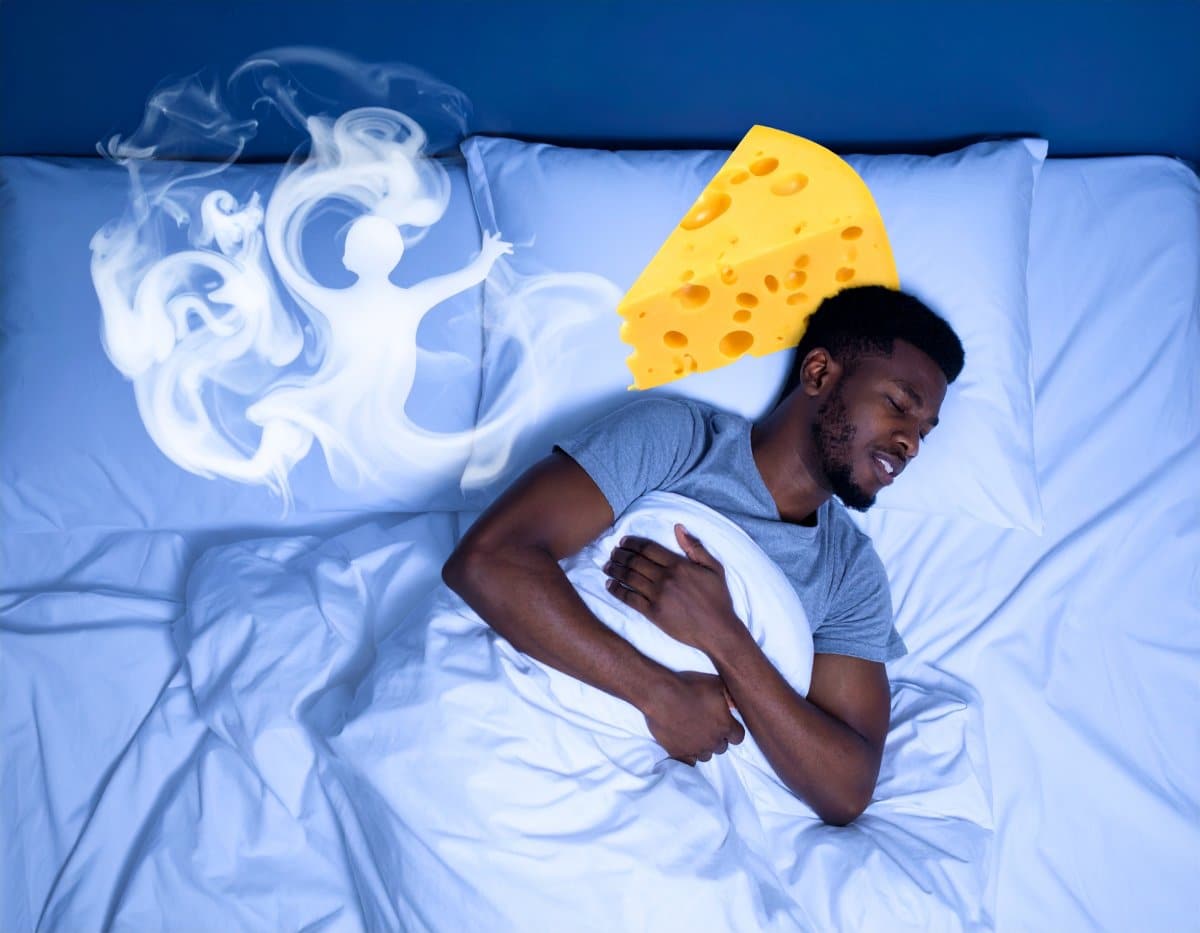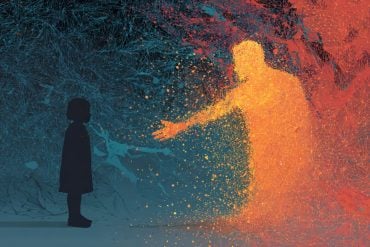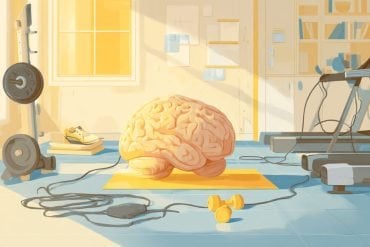Summary: A new study links lactose intolerance and food sensitivities to disrupted sleep and frequent nightmares. Researchers surveyed over 1,000 students and found that those with dairy intolerance reported more vivid and disturbing dreams, likely due to nighttime gastrointestinal discomfort.
Women were more likely to report food-related sleep issues, and unhealthy eaters experienced more negative dreams overall. While folk wisdom has long blamed cheese for bad dreams, this research provides data to back it up—though the exact mechanisms remain unclear.
Key Facts:
- Lactose Intolerance Link: Nightmares were strongly associated with gastrointestinal distress from dairy.
- Food-Sleep Connection: Around 40% of participants believed specific foods worsened sleep quality.
- Gender Differences: Women reported more food intolerances, nightmares, and dream recall than men.
Source: Frontiers
Scientists have found that eating too much dairy could ruin your sleep.
Researchers questioned more than 1,000 students about the quality of their sleep, their eating habits, and any perceived link between the two, and found a strong association between nightmares and lactose intolerance — potentially because gas or stomach pain during the night affects people’s dreams.

“Nightmare severity is robustly associated with lactose intolerance and other food allergies,” said Dr Tore Nielsen of Université de Montréal, lead author of the article in Frontiers in Psychology.
“These new findings imply that changing eating habits for people with some food sensitivities could alleviate nightmares. They could also explain why people so often blame dairy for bad dreams!”
Sweet dreams?
Although folk beliefs have long held that what you eat affects how you sleep, there’s very little evidence to prove or disprove them. To investigate, researchers surveyed 1,082 students at MacEwan University. They asked about sleep time and quality, dreams and nightmares, and any perceived association between different kinds of dreams and different foods. They also asked about participants’ mental and physical health and their relationship with food.
About a third of respondents reported regular nightmares. Women were more likely to remember their dreams and to report poor sleep and nightmares, and nearly twice as likely as men to report a food intolerance or allergy.
About 40% of participants said that they thought eating late at night or specific foods affected their sleep; roughly 25% thought particular foods could make their sleep worse. People who ate less healthily were more likely to have negative dreams and less likely to remember dreams.
“We are routinely asked whether food affects dreaming — especially by journalists on food-centric holidays,” said Nielsen. “Now we have some answers.”
Cheesy culprits
Most participants who blamed their bad sleep on food thought sweets, spicy foods, or dairy were responsible. Only a comparatively small proportion — 5.5% of respondents — felt that what they ate affected the tone of their dreams, but many of these people said they thought sweets or dairy made their dreams more disturbing or bizarre.
When the authors compared reports of food intolerances to reports of bad dreams and poor sleep, they found that lactose intolerance was associated with gastrointestinal symptoms, nightmares, and low sleep quality. It’s possible that eating dairy activates gastrointestinal disturbance, and the resulting discomfort affects people’s dreams and the quality of their rest.
“Nightmares are worse for lactose intolerant people who suffer severe gastrointestinal symptoms and whose sleep is disrupted,” said Nielsen.
“This makes sense, because we know that other bodily sensations can affect dreaming. Nightmares can be very disruptive, especially if they occur often, because they tend to awaken people from sleep in a dysphoric state. They might also produce sleep avoidance behaviors. Both symptoms can rob you of restful sleep.”
Eat well to sleep well?
This could also explain why fewer participants reported a link between their food and their dreams than in a previous study by Nielsen and his colleague Dr Russell Powell of MacEwan University, conducted eleven years earlier on a similar population.
Improved awareness of food intolerances could mean that the students in the present study ate fewer foods likely to activate their intolerances and affect their sleep. If this is the case, then simple dietary interventions could potentially help people improve their sleep and overall health.
However, besides the robust link between lactose intolerance and nightmares, it’s not clear how the relationship between sleep and diet works. It’s possible that people sleep less well because they eat less well, but it’s also possible that people don’t eat well because they don’t sleep well, or that another factor influences both sleep and diet. Further research will be needed to confirm these links and identify the underlying mechanisms.
“We need to study more people of different ages, from different walks of life, and with different dietary habits to determine if our results are truly generalizable to the larger population,” said Nielsen.
“Experimental studies are also needed to determine if people can truly detect the effects of specific foods on dreams. We would like to run a study in which we ask people to ingest cheese products versus some control food before sleep to see if this alters their sleep or dreams.”
About this sleep research news
Author: Tore Nielsen
Source: Frontiers
Contact: Tore Nielsen – Frontiers
Image: The image is credited to Neuroscience News
Original Research: Open access.
“More dreams of the Rarebit Fiend: Food sensitivity and dietary correlates of sleep and dreaming” by Tore Nielsen et al. Frontiers in Psychology
Abstract
More dreams of the Rarebit Fiend: Food sensitivity and dietary correlates of sleep and dreaming
Background: Despite centuries-old beliefs and anecdotal evidence that food can influence one’s sleep and dreams—an example being the classic Dream of the Rarebit Fiend cartoon series—the topic has only rarely been researched.
Methods: We asked 1,082 participants to complete an online survey to test specific hypotheses on why people perceive that food affects their dreams, including whether specific foods influence dreams directly (food-specific effects), through physiological symptoms (food distress), or via altered sleep quality (sleep effects).
Survey measures included standard demographic variables, targeted probes about self-perceived effects of specific foods on dreams, questions about diet, food intolerances and allergies, personality questionnaires, measures of sleep quality (Pittsburgh Sleep Quality Index) and the Nightmare Disorder Index.
Results: A total of 40.2% of participants reported that certain foods either worsened (24.7%) or improved (20.1%) their sleep, while 5.5% of participants reported that food affected their dreams.
The perceived effect of food on dreams was associated with higher nightmare recall and Nightmare Disorder Index scores, with changes being blamed primarily on desserts/sweets (31%) and dairy (22%).
The effect was also associated with food allergies and Gluten Intolerance, while worse sleep perceptions were tied to Lactose Intolerance. Nightmare Disorder Index scores were strongly associated with Food Allergy and Lactose Intolerance, the latter being mediated by the severity of gastrointestinal symptoms.
Healthy eating, such as less evening eating, predicted higher dream recall, while unhealthy eating—including gastric symptoms, lower reliance on hunger and satiety cues, and evening eating—predicted nightmares and dream negativity.
Conclusions: These results support the food-specific effects, food distress, and sleep effects hypotheses to varying degrees. They replicate associations between diet and dream features, highlighting food sensitivities, particularly Lactose Intolerance, as contributors to nightmare prevalence.
Findings open new avenues of research on food-dependent dreaming by suggesting dairy-induced gastrointestinal symptoms as one plausible basis for bizarre or disturbing dreams.
They have clear implications for understanding how dietary factors may influence sleep quality and the occurrence of nightmares and could inform non-pharmacological interventions for sleep disturbances.






